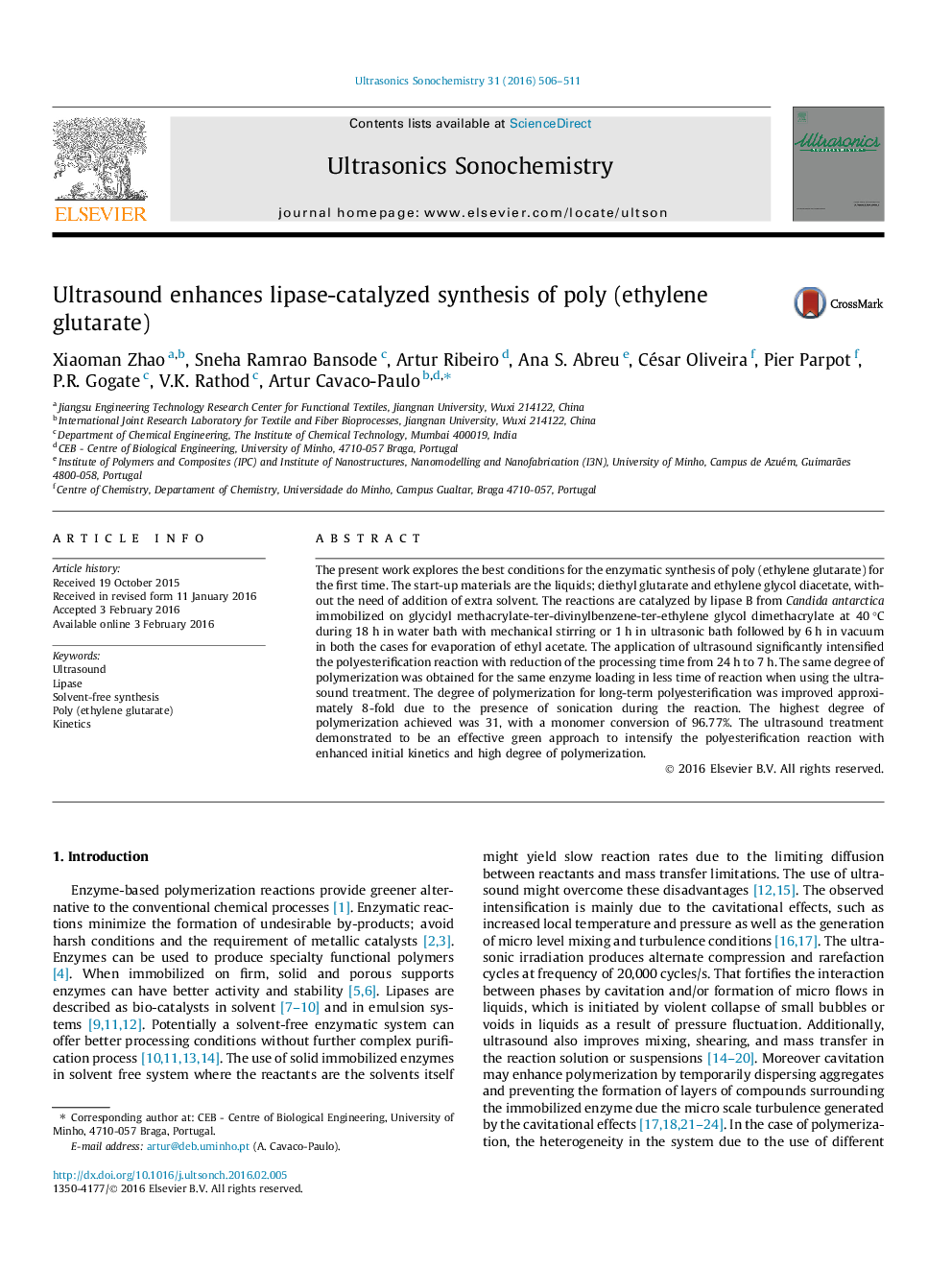| Article ID | Journal | Published Year | Pages | File Type |
|---|---|---|---|---|
| 1265700 | Ultrasonics Sonochemistry | 2016 | 6 Pages |
•Faster kinetics was found on ultrasound based polyesterification.•Vacuum was found essential to enhance the polyesterification.•Ultrasound yield a higher DPn in a 72 h reaction time.
The present work explores the best conditions for the enzymatic synthesis of poly (ethylene glutarate) for the first time. The start-up materials are the liquids; diethyl glutarate and ethylene glycol diacetate, without the need of addition of extra solvent. The reactions are catalyzed by lipase B from Candida antarctica immobilized on glycidyl methacrylate-ter-divinylbenzene-ter-ethylene glycol dimethacrylate at 40 °C during 18 h in water bath with mechanical stirring or 1 h in ultrasonic bath followed by 6 h in vacuum in both the cases for evaporation of ethyl acetate. The application of ultrasound significantly intensified the polyesterification reaction with reduction of the processing time from 24 h to 7 h. The same degree of polymerization was obtained for the same enzyme loading in less time of reaction when using the ultrasound treatment. The degree of polymerization for long-term polyesterification was improved approximately 8-fold due to the presence of sonication during the reaction. The highest degree of polymerization achieved was 31, with a monomer conversion of 96.77%. The ultrasound treatment demonstrated to be an effective green approach to intensify the polyesterification reaction with enhanced initial kinetics and high degree of polymerization.
Graphical abstractFigure optionsDownload full-size imageDownload as PowerPoint slide
